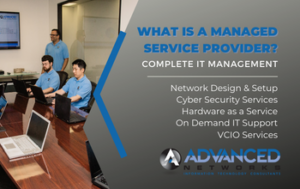
IT services experts in Los Angeles will advise you that decentralized mobile infrastructure, such as that used in Bring Your Own Device (BYOD), is necessary to your business. Decentralization is the wave of the future, but with it comes inherent risks.
Increased Hardware Surface Areas
You have to contend with decentralized infrastructure incorporating IoT (Internet of Things) devices, BYOD, and the cloud.
Accordingly, employees work remotely and often use untrusted networks. Protocols are necessary to reduce your vulnerable tech surface area. However, that surface area expands with decentralization. The solution? Consider these security strategies:
1. Establish Varying Unique Boundaries
IT services experts in Los Angeles advise that you should carefully establish operational boundaries in terms of internet connectivity, approved devices, and cloud interaction. Different boundaries are more or less appropriate for different businesses.
2. Only Allow Specific Apps
Third-party apps are prime vectors for Trojan malware which hides in the background and doesn’t manifest until activated. By carefully screening apps allowed on your network, you can avoid being incidentally impacted by such viruses.
3. Use MFA
IT support specialists in LA strongly advise multi-factor authentication (MFA) on all decentralized networks which lean heavily on mobile devices. MFA is basically when more than one device or avenue of authentication is used to verify an individual’s identity.
So you might get a text message on your phone with a code when you’re trying to sign into a network from your laptop. There are different means of applying MFA, consultation can help you find which ones will most appropriately fit your operations.
Safeguarding Mobile Infrastructure from Decentralized Threats
Our IT services team in Los Angeles can help you secure your mobile infrastructure from natural vulnerability. Through establishing specific boundaries, controls on software, and MFA, you can reduce a large amount of entry-points cybercriminals use. The “landscape” is always changing as technology develops, so you’ll have to keep this security strategy fluid. To learn more, get in touch with us at Advanced Networks.




